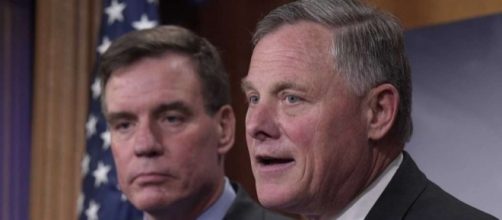Of the four bodies conducting an investigation related to the Trump administration and their ties to Russia, the one by the Senate Intelligence Committee appeared to be the one to take more seriously than the one conducted by the House Intelligence Committee, which has been rife with high drama over the past few months.
During what many considered to be a distraction from conducting that investigation, the top two senators on the Senate Intelligence Committee Mark Warner (Democrat) and Richard Burr (Republican), made statements to the press on March 30 saying that they would get to the bottom of it, but reports now suggest that they're rather sluggish to get to the bottom of anything.
Burr won't allow help from prosecutors
The issue now is a matter of resources. The Senate started their investigation three months ago when -- until this week -- they had seven staffers who had access to classified documents which the committee apparently just completed their first round of reviews of. The mentioned press briefing hinted at a bipartisan approach to the investigation; however, the view now is that Democrats want more resources devoted to the process, but Republicans do not.
It's been reported that Mark Warner wants someone who has a background in legal prosecutions because they would bring a different view to the process. But it would seem that Richard Burr has the final say, and he doesn't feel it's necessary.
In fact, not only did he say it wasn't necessary, he was very much against it saying that there would never be a function of their committee, any committee most likely, that would have any prosecutors.
Other obstructions in Senate investigation
This week, however, the committee did fill two empty National Security Agency monitor positions which bring the number of staff up to nine.
One of them was April Doss who was picked by Democrats and the other by Republicans, who won't say who it is. It's been reported that the seven staffers were working part-time and did not have legal or investigative experience. Clues to the pace the Senate's investigation will be at are clear with the fact that Doss will not be leading the probe.
It's unknown whether Republicans will either allow it or not, despite the fact that she was the head of intelligence law at the National Security Agency.
Another hint is in the fact that the Senate Intelligence Committee hasn't issued subpoenas to obtain documents or to interview any witnesses. In contrast with the mentioned press briefing, the Senate's commitment to investigate appeared to be more mature than the House's, but now that the House Intelligence Committee has been able to hold off Devin Nunes and start holding hearings for key witnesses like Sally Yates, the roles of commitment appear to have shifted.

